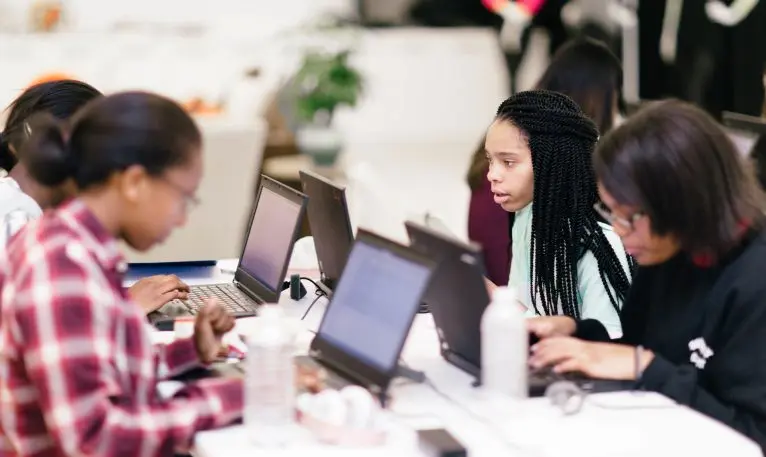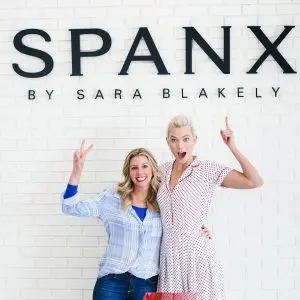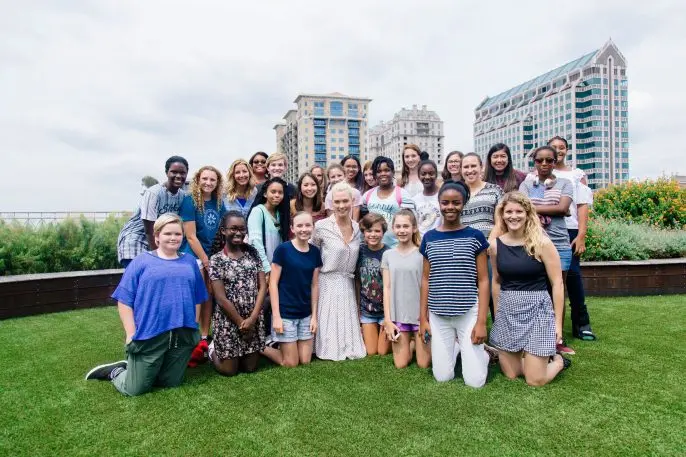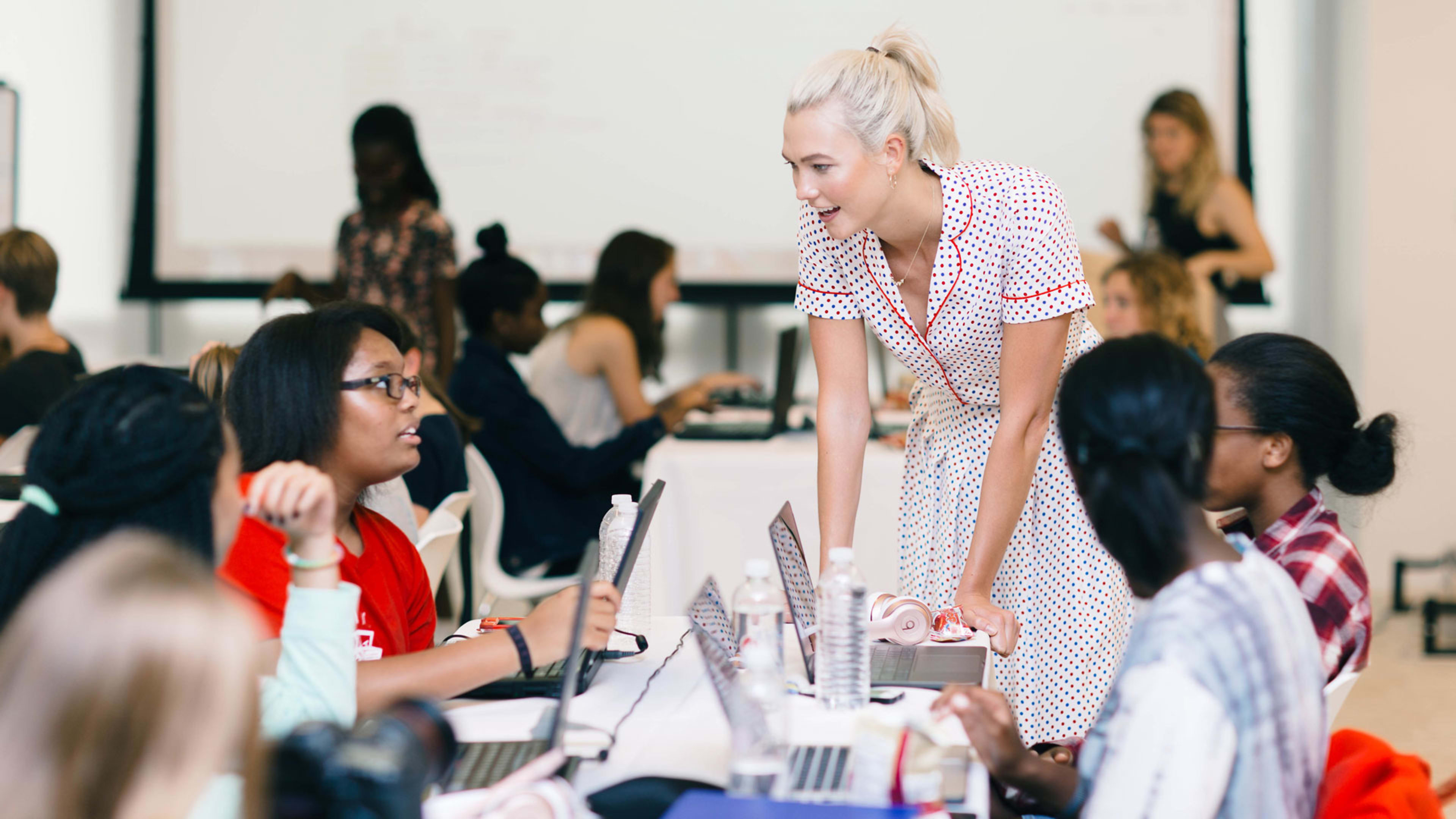It all started on a whim. Four years ago, supermodel Karlie Kloss decided to take an intensive coding course at New York Flatiron School. She had never written a lick of code in her life, but she wanted to see what the fuss about coding was all about. Between runway shows in Paris and Milan, and magazine shoots in London and New York, she would sit down with her instructor, Avi Flombaum, and learn the basics of Ruby on Rails.
“It was sheer curiosity that led me to take that class,” the 25-year-old Kloss tells Fast Company. “But it was really eye-opening to learn about the hardware and the software that goes into the tech we use every day.”
Related: “Not Just Guys In Hoodies”: Karlie Kloss Is Reimagining What Coders Look Like
As a successful model, Kloss didn’t have any immediate reason to learn how to code, but she soon realized the activity could bring sweet rewards–literally. “One of the first things I learned how to program was a drone that could pick up a cookie on one side of the room and deliver it to the other side of the room,” she says with a twinkle in her eye. “It’s still one of my favorite things I’ve learned to do with code.”
Around 2012, coding bootcamps like the Flatiron course began popping up all over the country with the promise of equipping people with no prior training with the basics of computer science. In Kloss’s case, she was surprised to discover that coding wasn’t an impenetrable skill. “It’s a language just like any other language,” she says. “And the way our world is going, learning to code should be just as important as learning your mother tongue.”
There’s a persistent narrative in our culture that women are less inclined to pursue computer science. This was evident in the infamous Google memo, in which an employee, James Damore, claimed that women are genetically less inclined to code. This hasn’t been Kloss’s experience, though. She’s encountered many young women who are just as curious as she is about the technology that surrounds them. “They are aware of the power of these technical skills and how they are shaping the world today,” Kloss says. “These young women grew up with this technology embedded and they’re not scared to try building things. They are more forward-thinking than we sometimes give them credit for.”

A Call To Action—And Lots Of Answers
Back in 2014, Kloss put out a call on her social media channels, asking if there were like-minded young women out there who wanted to code but didn’t have access to a course. She received an avalanche of responses from young women and ultimately offered scholarships to 21 young women to attend a two-week summer camp at the Flatiron School.
Three years later, Kloss says that this initiative–called Kode With Klossy–has grown and evolved. So far, more than 400 girls age 13 to 18 have gone through the Kode With Klossy summer camps. Kloss can now track where these students have ended up, and the results have been impressive. One of the original beneficiaries just won the grand prize at the TechCrunch Disrupt Hackathon, together with three other high school girls. (The team beat out 750 engineers with a virtual reality app that can help treat and diagnose ADHD efficiently.) Another young woman from the first cohort has been accepted to top computer science college programs around the country, including NYU, Stony Brook, and Columbia.
Inspired by these successes, Kloss is expanding the Kode With Klossy program. In addition to these two-week summer camps, she has started to partner with women-led community organizations around the country to launch three-day coding workshops. She’s already collaborated with Electric Girls in New Orleans, Girls Inc. of Omaha, and CoderGals in Miami to offer “back-to-school” coding workshops to teen girls, entirely free of charge.

This past weekend, on Women’s Equality Day, Kloss and Spanx founder Sara Blakely spent the day in Atlanta, working alongside 25 young women from the Atlanta Girls School. Kloss partnered with Blakely to help select and work with these young women with the help of the company’s charitable wing, the Sara Blakely Foundation.
On Saturday, the first day of the three-day bootcamp, the group of young women was buzzing with excitement that Kloss had come to see them in person. The group was diverse in every possible way: They came with a wide range of skills, different socioeconomic backgrounds, and were aged between 13 and 18. (“A few 12 year-olds snuck in too,” Kloss says with a smile.) They had a wide range of interests: Some were set on becoming engineers, but others wanted careers in fashion, like Kloss and Blakely. In many ways, they acted like girls their age, blowing bubble gum and giggling. But they were also quick to dig into HTML and JavaScript, and were keen to begin building websites and programming games.
“I thought it would be inspiring for them to be learning about code while sitting in the offices of a company that is innovative, creative, and powered by technology in a lot of ways,” Kloss says. “It is a company that is led by an empowered woman that I hope the girls can relate to.”

Changing The Gender Dynamic
By offering a wider range of formats for her program, Kloss appears to be evolving the mission of her organization. In addition to the two-week summer cam program and a monthly Kode With Klossy Career Scholarship in partnership with the Flatiron School, Kloss is proving more opportunities to help young women overcome the initial hurdles that might prevent them from giving coding a chance. Part of this has to do with launching more of these short bootcamps that are designed to feel accessible and less like a major commitment. Over the next few months, she will be continuing to partner with other organizations to bring these intensive courses around the country.
But Kloss is also trying to send a broader message that coding is something that all young women should be willing to learn about, even if they don’t see themselves spending their careers as web developers or tech entrepreneurs. “Just because I am a fashion model doesn’t mean that I couldn’t take a coding class,” Kloss says. “I have no plans to quit my day job, but I still think that learning these technical skills is incredibly valuable.”
For Kloss, part of changing the gender dynamic in technology has to do with giving women the chance to tinker with coding and weave it into their existing interests. “The girls in the program may have learned about Kode With Klossy in Teen Vogue because they love fashion,” Kloss says. “I’m trying to communicate that there are so many creative ways that this technical problem-solving can be applied.”
Recognize your brand’s excellence by applying to this year’s Brands That Matter Awards before the early-rate deadline, May 3.
